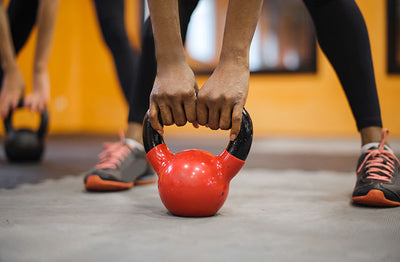We always hear that we need to stay active and exercise daily, but more exercise isn’t always the best option for you. As good as exercising can make you feel, it’s important to take the time to actively recover. You need to schedule regular days for recovery instead of going full speed with your workouts every single day and never taking the time to rest. In fact, rest days are just as important as exercise, as a successful fitness routine isn’t complete without recovery days. Taking regular breaks allows your body to recover and repair. It’s a critical part of progress, whatever your fitness level or sport. Otherwise, skipping rest days can lead to overtraining, burnout, and injury.
We look at the benefits of taking regular rest days during your training regime and provide a list of the best things you can do on a rest day to consolidate your hard work in the gym.
Benefits of a rest day
Allows time for recovery
Rest days aren’t about being lazy or slacking off. Taking the time to recover is when the beneficial effects of exercise can take place – as rest is essential for muscle growth. As you probably know, exercise creates microscopic tears in your muscle tissue. Giving your muscles sufficient time to rest allows cells called fibroblasts to repair them. This helps the tissue to heal and grow, resulting in muscle growth. Your muscles also store carbohydrates in the form of glycogen; however, your body breaks down glycogen during exercise to fuel your workout. Rest days give your body time to replenish these energy stores before your next workout.
Prevents muscle fatigue
Rest is necessary for reducing exercise fatigue. As exercise depletes your muscles’ glycogen levels, if you don’t replenish them, you’ll continue to experience muscle fatigue and soreness. Plus, your muscles need glycogen to function even when you’re not working out, so by getting adequate rest you’ll prevent fatigue by letting your glycogen levels refill.
Reduces the risk of injury
Getting regular rest is crucial for staying safe during exercise. If you overwork your body and different muscle groups, you’ll be more likely to fall out of form, drop a weight, or take a wrong step. This can lead to overtraining, exposing you to potential repetitive stress and strain. This also increases the risk of overuse injuries, which in the long run could mean more time off then planned.
Improves performance
Not getting enough rest can impact your normal routine. Without taking the time to allow your muscles to repair and not taking a mental break can help reduce your motivation and can lead to burnout. Pushing yourself too hard can lead to overtraining and inevitably decrease your performance. This can reduce your endurance, slow your reaction times, and give you poorer agility. Rest has an inverse impact on your body; it will increase your energy levels and prevent fatigue.
Supports healthy sleep
Regular exercise is great for improving your sleep but taking rest days is also beneficial for achieving healthy sleep patterns. Exercise and physical activity increase energy-boosting hormones like cortisol and adrenaline. However, overdoing it can lead to an overproduction of these hormones – meaning you’ll have a more difficult time getting quality sleep, which can exacerbate fatigue and exhaustion. The bottom line is that giving your body some time off from strenuous exercise can help you get better sleep by letting your hormones return to a normal, balanced state. For more info on the importance of sleep for muscle growth, check out this great
article.
What to do on a rest day
Hydrate
Most people know how important it is stay well hydrated while working out, but it’s important that this mentality carries over into rest days and down time as well. Water supports better muscle and joint movement, helping you to avoid muscle cramps and soreness.
Eat well
Carbs are a great energy source when you’re hitting the gym, but it can be smart on rest days to limit your intake. Try focussing your diet on lean protein (which helps muscles recover), fresh fruits and veggies. The vitamins and minerals found in these foods play a key role in your ability to recover from a strenuous workout. Protein supplements are a great way of ensuring that you’re consuming high quality protein and getting the right amount each day. Quality whey protein supplements include
Dymatize - ISO 100,
Optimum Nutrition - Gold Standard 100% Whey and
Muscle Pharm - COMBAT 100% WHEY. Many athletes will also refuel and replenish with a nutrient-packed shake which provides a quick and easy-to-digest option. We recommend
Dymatize CREATINE MICRONIZED,
Optimum Nutrition CREATINE POWDER,
Muscle Pharm Essentials Creatine and
Rule 1 R1 Creatine. We also have a heap of healthy, high protein and nutritious
recipes for those looking for new ideas.
Stay active
Rest days are perfect for enjoying low-impact workouts such as yoga or Pilates. The idea behind a rest day is not to avoid all activity but to take a break from intensive gym workouts – so lying on the couch all day is not the best approach to a rest day – sorry! Aim for 30-45 minutes of light recovery exercise on your rest day.
Yoga
Yoga is a great rest day activity. It’s excellent for improving body awareness, breathing, and flexibility. Yoga can also help you build strength while relaxing your muscles.
Plus, yoga also promotes calmness, leaving you refreshed and ready for your next workout. Just 10-15 minutes of yoga will help with your exercise recovery and won’t take up a huge part of your day.
Low-impact workout
Like yoga, low-impact exercise is a great rest day activity. Low-impact workouts help you stay active without stressing your body. They also let you enjoy exercise in a more relaxing way. Try getting out for a walk, swim, ride or even dancing to hit your low-impact exercise quota!
Stretching
Taking a few minutes to stretch daily can greatly improve flexibility and can help reduce muscle tightness. This is especially important on rest days because it can help speed up your recovery. Foam rollers are a fantastic way of getting a self-myofascial massage, which has been shown to reduce muscle soreness and improve range of motion following a workout.
Consistently training requires a lot of hard work, persistence and motivation. Make sure you take the time to reward yourself with mental and physical rest. Rest days allow you to recharge both mentally and physically, which are sure to help improve your future performance!















